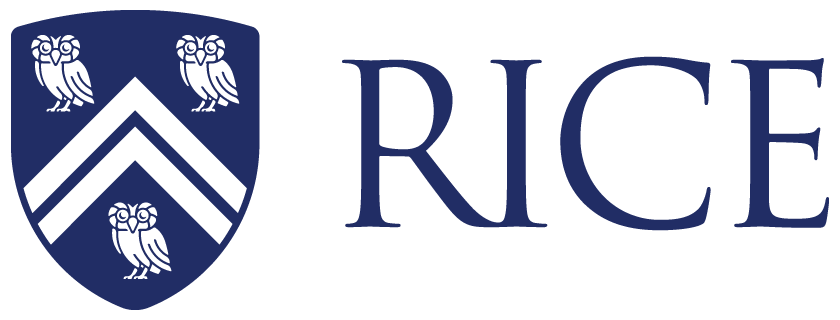Contact Information
Email: ricecuwip@gmail.com
Dr. Patricia Reiff [reiff@rice.edu]
Rice Space Institute, MS-108
Rice University
6100 Main Street
Houston, TX 77005-1892
Conference Speakers
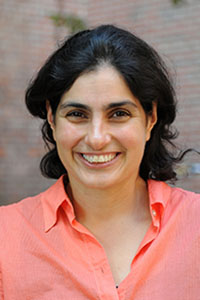
Nergis Mavalvala
The APS keynote speaker is Prof. Nergis Mavalvala from the Massachusetts Institute of Technology.
Professor Nergis Mavalvala joined the Physics faculty at MIT in January 2002. Before that, she was a postdoctoral associate and then a research scientist at Caltech, working on the Laser Interferometric Gravitational Wave Observatory (LIGO). She has been involved with LIGO since her early years in graduate school at MIT and her primary research has been in instrument development for interferometric gravitational-wave detectors. Professor Mavalvala received a Ph.D. in Physics from MIT in 1997, and a B.A. in Physics and Astronomy from Wellesley College in 1990. She was appointed Associate Department Head of Physics, effective February 1, 2015.
Professor Mavalvala's research focuses on interferometric Gravitational Waves and Quantum Measurement. The gravitational waves that LIGO detects are ripples in the spacetime fabric caused by the motion of compact, massive astrophysical objects. Since the nature of gravitation is inherently different from electromagnetism, gravitational wave astrophysics has the potential of providing a radically different view of the universe, including direct observation of massive dark matter, large-scale nuclear matter and a test of strong-field gravitation.
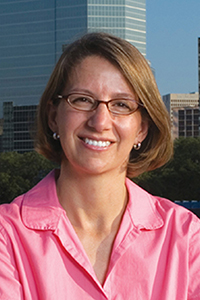
Rebecca Richards-Kortum
Malcom Gillis University Professor, Rice University
Director, Rice 360 Institute for Global Health
Founder, Beyond Traditional Borders Undergraduate Global Health Program
2016 MacArthur Fellowship recipient
Ph.D., Medical Physics, Massachusetts Institute of Technology (1990)
M.S., Physics, Massachusetts Institute of Technology (1987)
B.S., Physics and Mathematics, University of Nebraska - Lincoln (1985)
Guided by the belief that all of the world’s people deserve access to health innovation, Professor Rebecca Richards-Kortum’s research and teaching focus on developing low-cost, high-performance technology for low-resource settings. She is known for providing vulnerable populations in the developing world access to life-saving health technology, focusing on diseases and conditions that cause high morbidity and mortality, such as cervical and oral cancer, premature birth, and malaria. Richards-Kortum is also leading a multi-institutional team to develop a package of 17 life-saving neonatal technologies, designed for low-resource settings while providing the same efficacy a related technologies used in North America, but at a fraction of the cost.
Current technologies are being tested and applied through multidisciplinary collaborations with clinicians and researchers at Rice, the UT M.D. Anderson Cancer Center, Baylor College of Medicine, UT Health Science Center-Houston, the British Columbia Cancer Agency. Over the past few years, Richards-Kortum and collaborators have translated these technologies from North America to both low- and medium-resource developing countries (Malawi, China, Botswana, El Salvador, and Brazil).
Richards-Kortum’s research has led to the development of 40 patents and more than 310 refereed research papers. Her teaching programs, research and collaborations have been supported by generous grants from the National Cancer Institute, National Institutes of Health, National Science Foundation, U.S. Department of Defense, Howard Hughes Medical Institute, the Bill & Melinda Gates Foundation, the Lemelson Foundation, USAID, Whitaker Foundation, and the Virginia and L.E. Simmons Family Foundation.
Richards-Kortum is a member of the US National Academy of Sciences, the National Academy of Engineering, and the Academy of Arts and Sciences. In 2016, she received the highest honor from The American Institute for Medical and Biomedical Engineering (AIMBE), the Pierre Galletti Award. She was named a Howard Hughes Medical Institute Professor in 2002 and 2006. Together with Maria Oden, she received the Lemelson-MIT Award for Global Innovation in 2014.
She received a B.S. in Physics and Mathematics from the University of Nebraska, a M.S. in Physics from the Massachusetts Institute of Technology, and a Ph.D. in Medical Physics from the Massachusetts Institute of Technology.
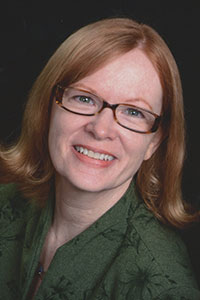
Marianne Dyson
Marianne Dyson was one of the first ten women to serve in NASA's Mission Control. Inspired by the space program and science fiction, she studied astronomy in college and earned her degree in physics (cum laude) from the University of North Carolina at Greensboro. Originally from Ohio, she moved to Texas to study space physics at Rice University. NASA lured her away from graduate school, and she became a Flight Activities Officer in charge of crew activities and procedures during the early Space Shuttle program.
Dyson left NASA to raise her children, and began sharing her passion for space through writing and speaking. Her first book, Space Station Science, (Scholastic), won the Golden Kite Award for the best children's nonfiction book of 1999. Home on the Moon, published by National Geographic in 2003, was serialized in the Denver Post and won the prestigious American Institute of Physics Science Writing Award. Her articles, poems, and short stories have appeared in numerous publications including; Ad Astra, Analog Science Fiction, Eat My Martian Dust, Girls to the Rescue, and Odyssey.
To help students get accurate space information, Dyson serves as a technical consultant for several publishers, including Scholastic's Space University series for which she also wrote book 8 on stars and galaxies. She continues to write and design the annual program book for the Rotary National Award for Space Achievement Foundation.
In 2007 she published Space and Astronomy: Decade by Decade and is currently working for National Geographic School Publishing on a physical science series.
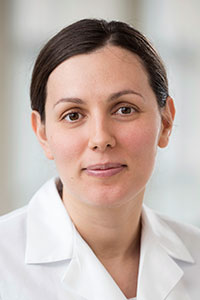
Christina Dodge
Cristina Dodge graduated from Wayne State University, Detroit MI with a B.S. in Molecular Biology and Genetics and a M.S. in Radiological Physics. She completed a residency program in Diagnostic Medical Physics at M.D. Anderson Cancer Center, Houston TX and is currently working at Texas Children's Hospital, Houston TX. As a clinical physicist, she works with all aspects of medical imaging including ultrasound, x-ray, fluoroscopy, CT and nuclear medicine.
- Amanda Acevedo, Vedo Systems
- Julia Bell, Klein Collins High School
- Tingting Chang, Shell International E&P, Inc.
- Christina Dodge, Texas Children's Hospital
- Alison Farrish, graduate student, Rice University
- Professor Chris Johns-Krull, Rice University
- Jennifer Johnson, MD Anderson Cancer Centeer
- Deborah Lillie, freelance textbook editor and author
- Jaki Noronhahostler, post doc, University of Houston
- Professor Patricia Reiff, Rice University
- Kathleen Richardson, Rice Wellness Center
- Professor Toni Sauncy, Texas Lutheran University
- Professor Donna Stokes, University of Houston
- Jamie Stone, financial industry
- Maria Tatanova, Shell International E&P, Inc.
- Professor Niescja Turner, Trinity University
- Professor Lisa Whitehead, University of Houstono
- Amanda Wickens, Rice University
- Professor Ching-Hwa Kiang, Rice University
- Professor Larry Pinsky, University of Houston
- Professor Laria Redjimi, San Jacinto College
